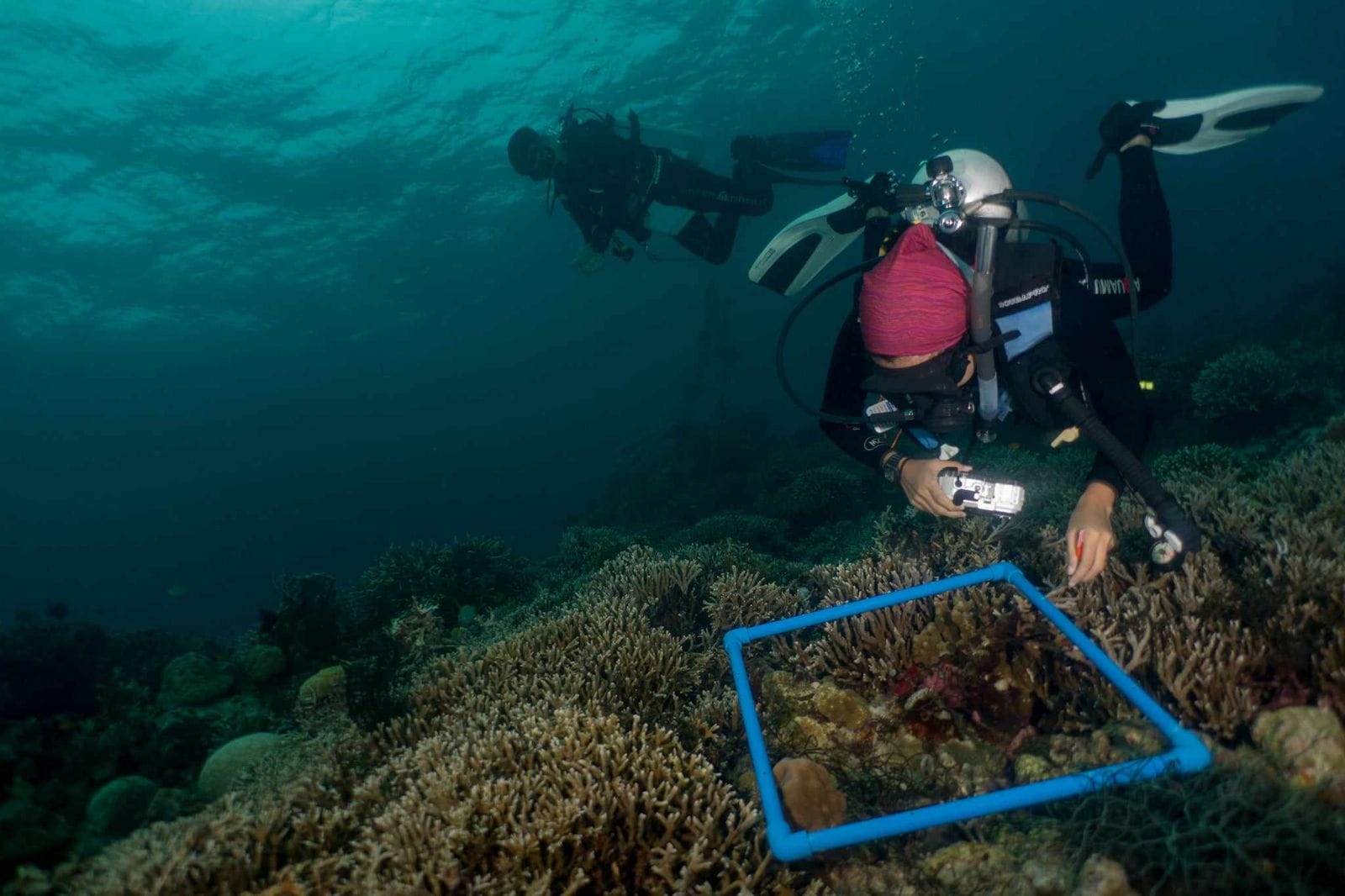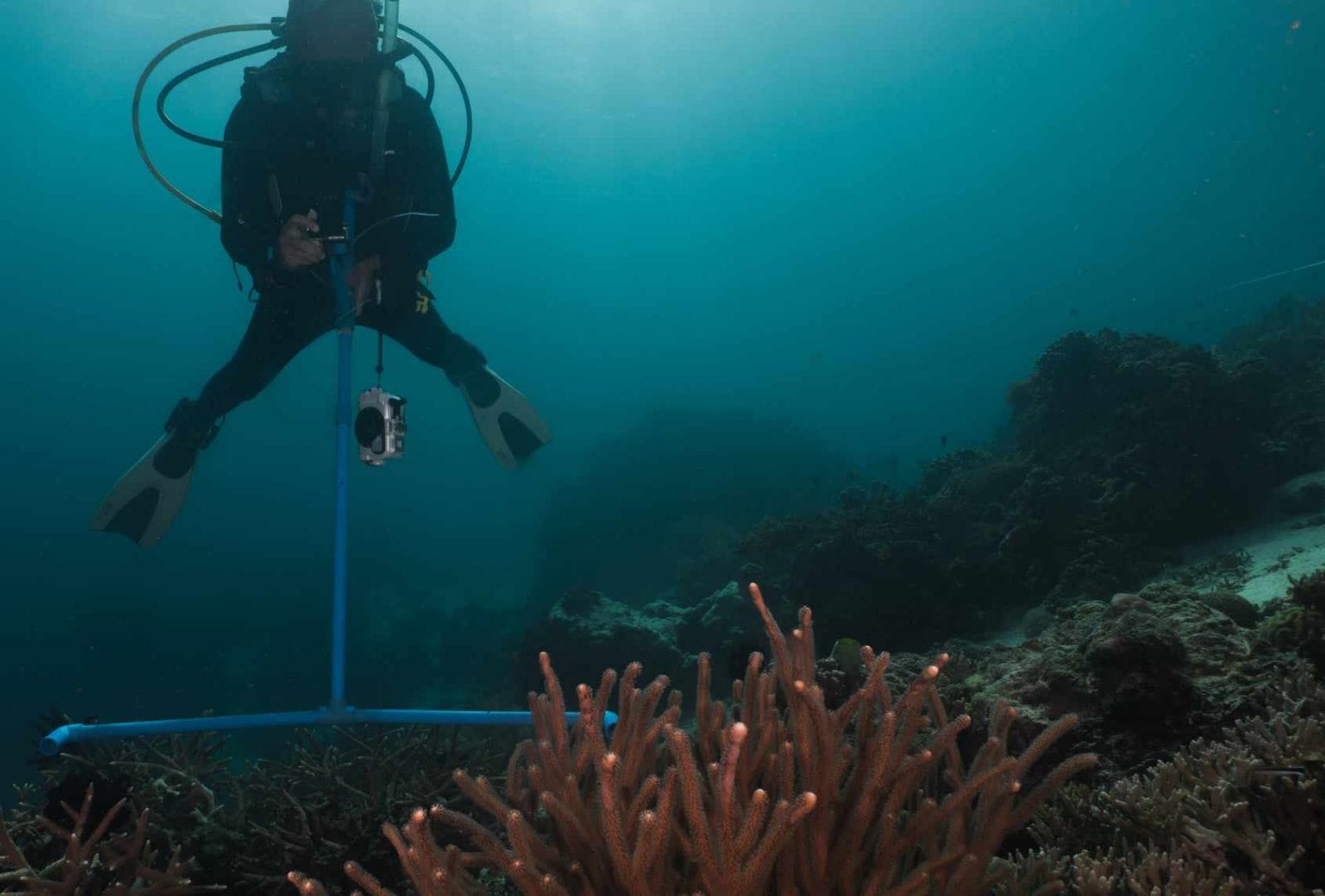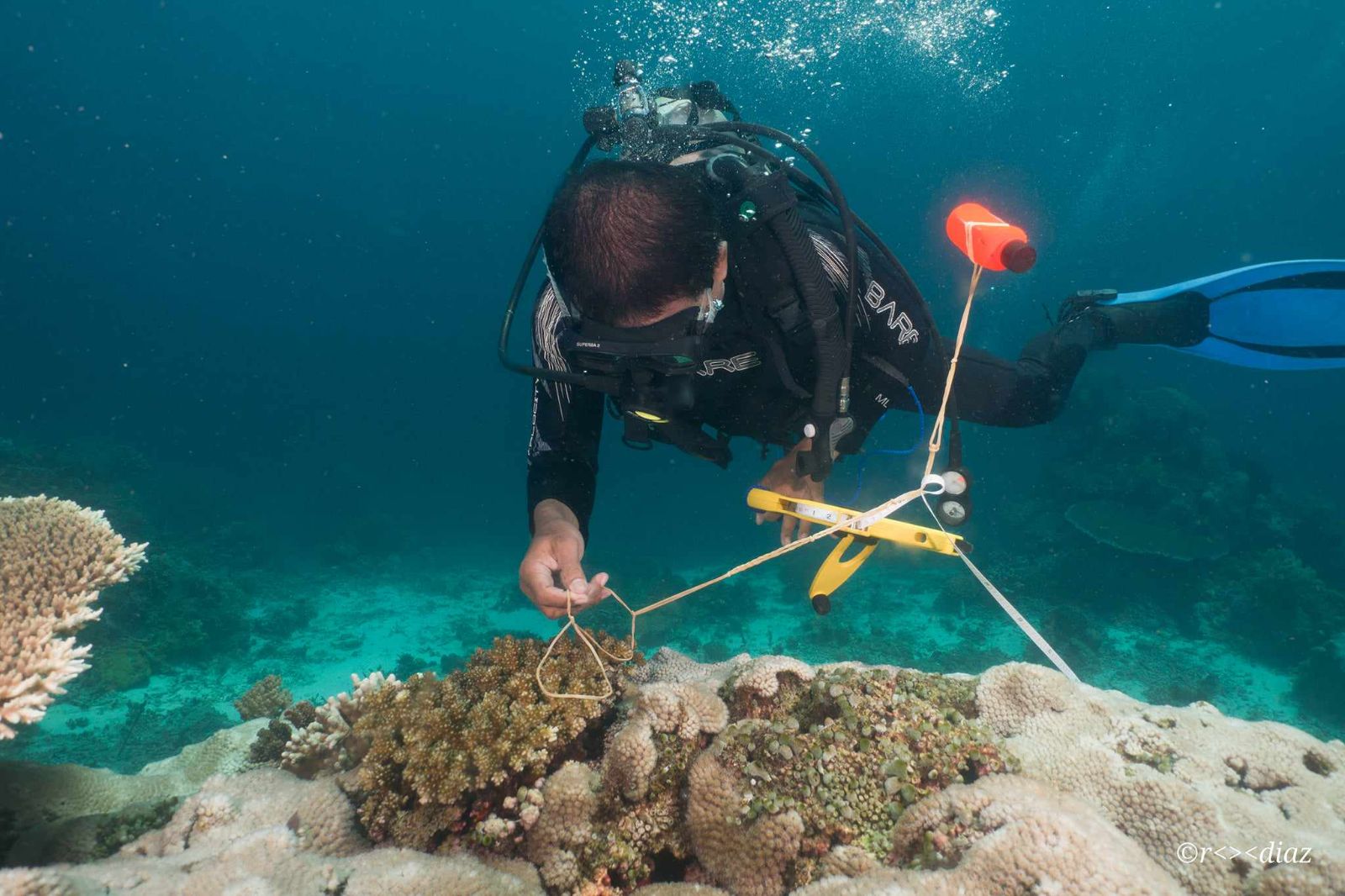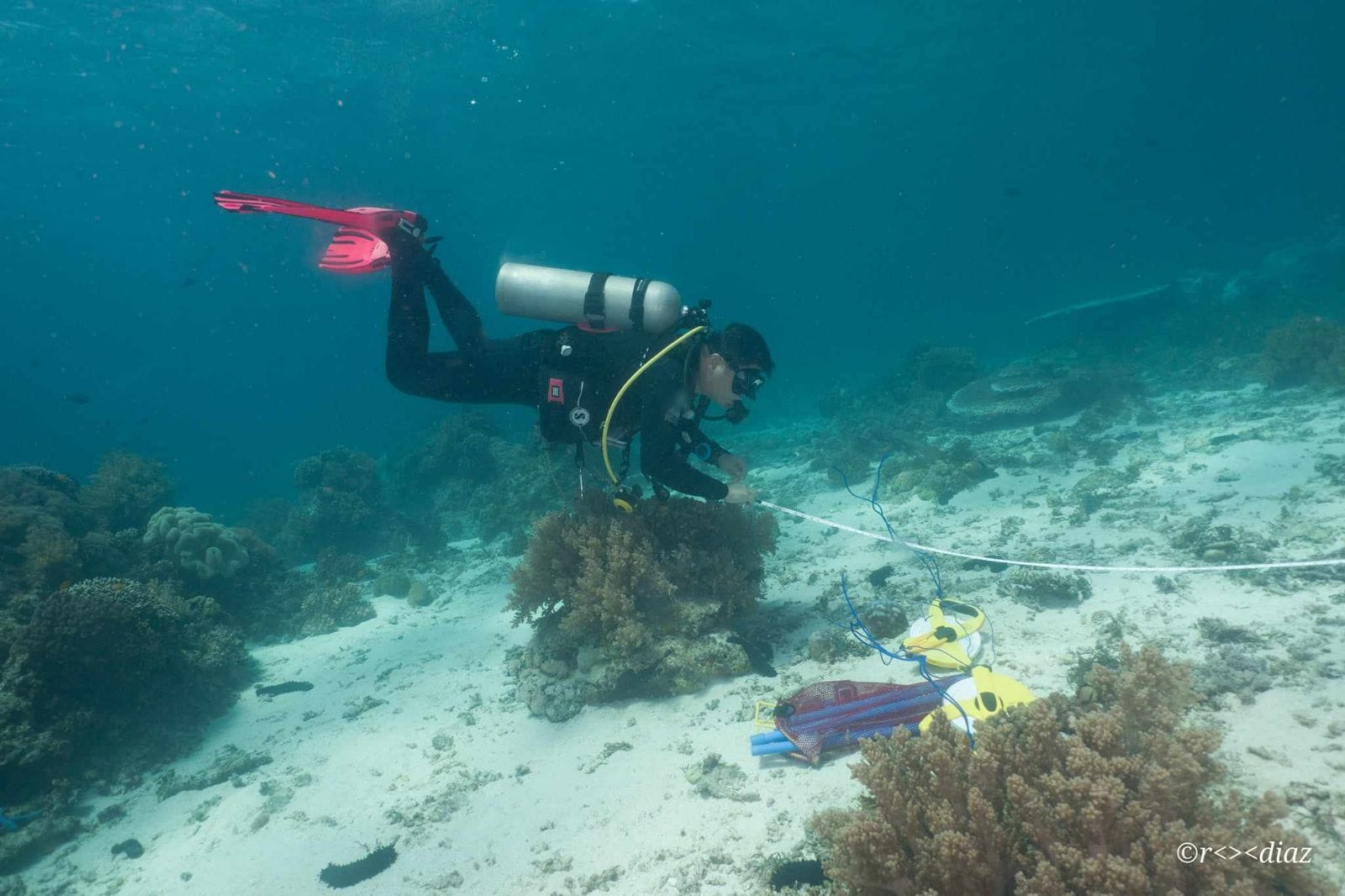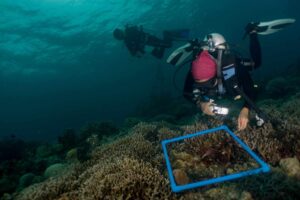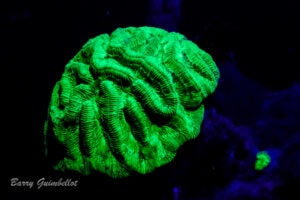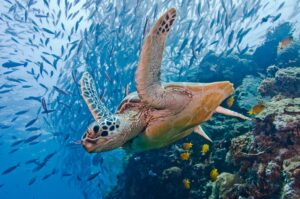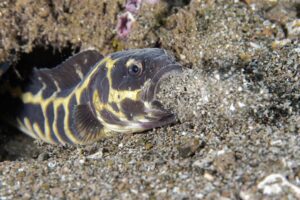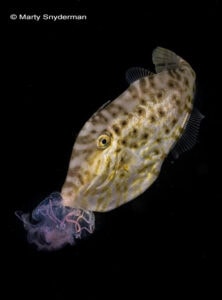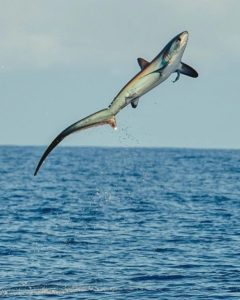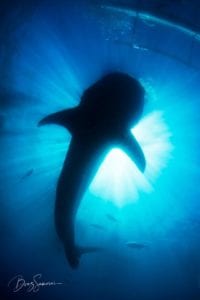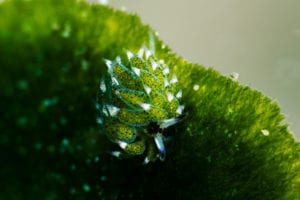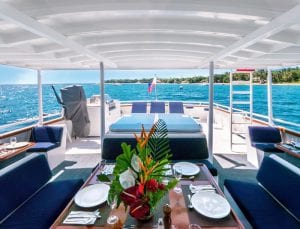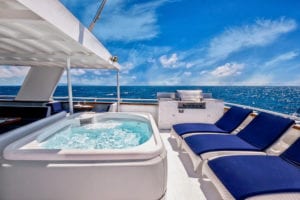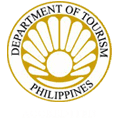The Apo Island Marine Protected Area (MPA) is one of the Philippines’ greatest conservation success stories.
Located off the coast of Negros Oriental, which, along with Negros Occidental, comprises Philippines 4th largest island, Apo Island is a hidden gem, less than 1 sq km in size. It is home to 650 documented species of fish and over 400 documented species of corals, that’s most of the coral species in the Philippines. It is here where science and community joined efforts to find the delicate balance of protecting reef fish in their habitat while relying on them as a food source. Apo Island MPA is one of the oldest and most successful community-managed MPAs in the Philippines, fostering the creation of hundreds of other marine sanctuaries in the island nation.
In 1982 the Apo Island community declared about 10% of the reef area of the southeast side of the island, where nearly no fishing was done anyways, as an MPA.
In 1986, the community’s Marine Management Council was put in place, and declared the end of the unsustainable fishing practice, allowing only line and spear fishing, traps and gill nets. It also appointed the Bantay (guard) Dagat (sea), who were the gatekeepers to enforce no fishing is done in the MPA. These 1986 decisions are in effect to this day.
Apo Island continued to maintain its MPA status throughout the years, with steady, ongoing protection since 1982. There are now three decades of data proving the positive effect MPAs have on fishing yields in nearby fishing communities.
The research study “Long Term Monitoring of the Effects of Marine Reserves” was initiated by the late Dr. Angel Alcala (Silliman University, Dumaguete, Philippines) and Dr. Garry Russ (James Cook University, Townsville, Australia) in 1983 and has been ongoing until the present. Dr. Alcala and Dr. Russ are credited for the establishment of the Apo Island Marine Reserve which has become the poster-child for community-based coastal resource management. Every year, the study’s survey team does a visual census of reef fishes within the Apo Island Marine Protected Area (MPA) and in the areas in Apo where fishing is allowed. Live coral cover as well as the overall substrate composition of the areas surveyed is also determined. The long-term nature of the study allows its dataset to be the comprehensive basis for the formulation of theories concerning reef fish population dynamics as well as coastal resources management policy. Coral recruitment rate has also been added to the parameters of the study to determine how fast the coral reefs in Apo Island are recovering from weather-related damage.
The latest round of fish and substrate surveys for the study in Apo Island happened this November 23-25 and was conducted by the survey team ably led by Dr. Rene Abesamis (Marine Science Institute, University of the Philippines, Dilliman, Philippines). The rest of the team was composed of Ms. Ma. Czarmane Jude Escoro (Marine Science Institute, University of the Philippines, Dilliman, Philippines), Mr. Roxie Diaz (DENR-Ecosystems Research and Development Bureau, Cebu, Philippines), Mr. Ronelo “Tata” Duran (Silliman Beach, Dumaguete, Philippines), and Dr. Klaus Stiefel (Silliman University Angelo King Center for Research and Environmental Management, Silliman University, Dumaguete, Philippines). Marco Inocencio, Atlantis’ resident marine biologist and nerd, also participated in the survey. Atlantis Dive Resorts & Liveaboards is proud to help with the study by providing logistical support during this year’s surveys, and will always support the continuous conservation efforts of our coral reefs. Atlantis is also very thankful to Dr. Abesamis for inviting us to be part of the memorial ceremony for Dr. Alcala which was held in Apo Island to honor the late National Scientist’s contributions which are benefiting the inhabitants and guests of Apo Island until today.




All underwater photos are courtesy of Mr. Roxie Diaz
